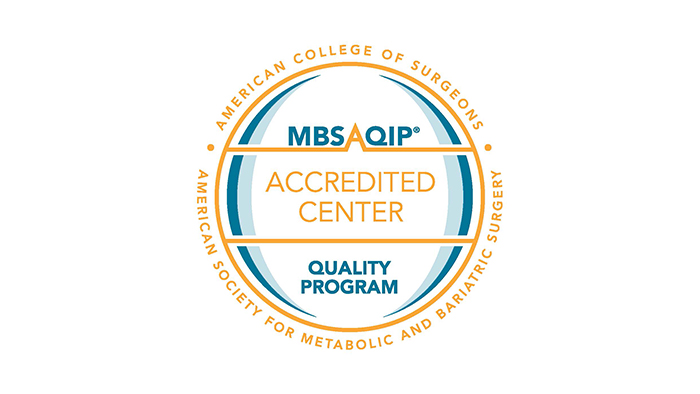You Are in Good Hands
Nationally Accredited
 National accreditation isn’t given, it’s earned.
National accreditation isn’t given, it’s earned.
Patients considering surgical options for weight loss are in the best hands. Our Bariatric Weight Loss Program is one of the only nationally accredited in bariatric surgery by the American College of Surgeons Metabolic and Bariatric Surgery Accreditation and Quality Improvement Program in Illinois.
Accreditation means our bariatric surgical team uses best practices and exceeds the national standards in quality and safety.
A Collaboration of Care
The Bariatric Weight Loss Program is a collaboration between Springfield Clinic and HSHS St. John’s Hospital in Springfield, IL.
With his specialized training in treating obesity through surgical procedures such as gastric bypass and sleeve gastrectomy, the program's medical director, Orlando Icaza, MD, works alongside the surgical and nursing leadership to oversee the hospital's involvement in the program.
Patient’s pre- and post-care are overseen by the Springfield Clinic and surgical procedures are performed at HSHS St. John’s Hospital in Springfield, IL.

Experienced Surgeons
You are receiving care from experienced surgeons.
Dr. Orlando Icaza and Dr. Luke Umana are both board-certified and fellowship-trained in bariatric surgery.
Over the past three years, our surgeons have performed more than 200 bariatric procedures at HSHS St. John’s Hospital. And that experience helps our patients experience better outcomes and lower complication rates.
Excellence in Bariatric Surgery
Our surgeons are national leaders.
Our bariatric experts are national leaders in their field who are actively involved in advancing bariatric surgery and improving outcomes.
Dr. Icaza developed a new bariatric procedure, the Duodenal-Jejunal Bypass with Sleeve Gastrectomy procedure. Dr. Umana performed the first robotic Sleeve Gastrectomy and first robotic SADI procedures in Springfield.

 National accreditation isn’t given, it’s earned.
National accreditation isn’t given, it’s earned. 
